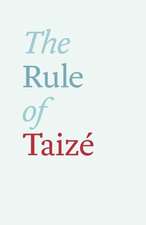Out of the Cloister: A Study of Organizational Dilemmas
Autor Helen Rose Fuchs Ebaughen Limba Engleză Paperback – mai 1977
Helen Rose Fuchs Ebaugh approaches religious orders as utopian communities and examines how contact with the larger society has affected the distinctiveness and solidarity that hold such groups together. She analyzes the patterns occurring within orders with particular focus on the relationship between organizational change and membership loss. Since changes have been introduced into religious orders at different rates, and since orders vary in such characteristics as size and educational level of members, it is possible to analyze relationships between exit rates and other organizational variables. The complex interplay of education and membership loss is one of the organizational dilemmas the author examines.
Although she is no longer a part of organized religious life, Ebaugh spent ten years as a nun and during that time collected much of the data presented in this book. As a nun she also helped conduct a number of self-studies and evaluations involved with the post-Vatican II reform and renewal efforts. She is therefore in the unique position of a researcher who collected data as an insider and analyzed it as an outsider.
This book is one of the first systematic, empirical studies of religious orders in the United States and one of the few sociological investigations of convents and the changes occurring within them.
Preț: 166.47 lei
Nou
Puncte Express: 250
Preț estimativ în valută:
31.86€ • 32.84$ • 26.90£
31.86€ • 32.84$ • 26.90£
Carte tipărită la comandă
Livrare economică 03-17 martie
Preluare comenzi: 021 569.72.76
Specificații
ISBN-13: 9780292740822
ISBN-10: 0292740824
Pagini: 176
Dimensiuni: 152 x 229 x 15 mm
Greutate: 0.45 kg
Editura: University of Texas Press
Colecția University of Texas Press
ISBN-10: 0292740824
Pagini: 176
Dimensiuni: 152 x 229 x 15 mm
Greutate: 0.45 kg
Editura: University of Texas Press
Colecția University of Texas Press
Notă biografică
Helen Rose Fuchs Ebaugh is Professor of Sociology at the University of Houston.
Cuprins
- Preface
- Acknowledgments
- Introduction
- 1. Religious Orders: Old and New
- Vatican Council II
- Overview of the History of Religious Orders of Women
- Pre-Vatican II Religious Orders
- Post-Vatican II Religious Orders
- 2. Sociological Perspectives
- Utopias: Do Religious Orders Qualify?
- Boundary Maintenance and Ideological Totalism
- Costs and Rewards of Membership
- Organizational Dilemmas
- Hypotheses
- Methodology
- Organizational Survey Data
- Case Studies
- Interview Data
- 3. Declining Membership in Religious Orders
- New Recruits into Religious Orders, 1960-1970
- Membership Losses, 1960-1970
- Organizational Change and Rates of Leaving
- Religious Variables, Change, and Membership Losses
- 4. Education and the Exodus
- Education and Rates of Leaving
- Size and Leaving Patterns
- 5. Why the Exodus from Religious Orders?
- Reasons for Leaving
- Reasons for Staying
- 6. Convents: Reflections on Their Present and Future
- Appendices
- 1. Organizational Surveys
- 2. Interview Schedules
- 3. The Problem of Nonresponse
- 4. Comparison of Sample to Total Population
- Notes
- Bibliography
Descriere
One of the first systematic, empirical studies of religious orders in the United States and one of the few sociological investigations of convents and the changes occurring within them.












